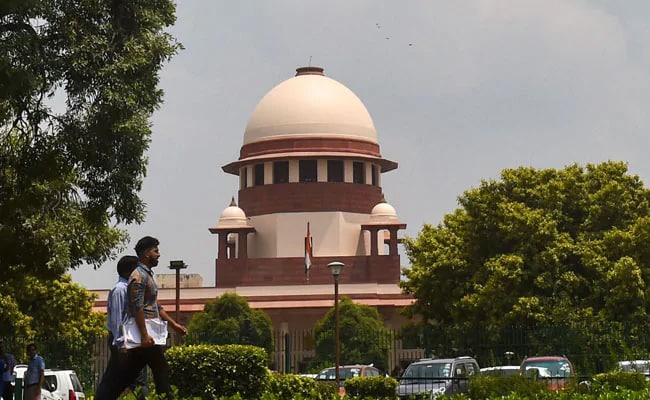
By K Raveendran
When 14 political parties together approached the Supreme Court alleging misuse of central agencies including CBI and Enforcement Directorate (ED) to cow down political opponents, the court rejected the plea on the ground that politicians cannot be placed on a pedestal for special treatment and that they can only be treated like common citizens. But a new petition by a private company, which has been at the receiving end of ED action, moved before the apex court has questioned the ‘drastic powers’ given to the agency, which according to the company, needs to be reined in.
ED’s arbitrary powers have been challenged in a batch of petitions relating to the agency’s action against Gurugram-based realty group M3M under the Prevention of Money Laundering Act (PMLA). Basant Bansal and Pankaj Bansal, directors of the company, were arrested in a money laundering probe related to a bribery case against a former judge. After their arrest, they were produced before a special PMLA court in Haryana’s Panchkula, which sent them to five-day ED custody.
Senior advocate Harish Salve, appearing on behalf of the Bansal brothers said, “These are drastic powers given to the ED. If the court does not rein them in, no one is safe in this country. See how the arrest was done. They were cooperating. The arrest was in violation of my rights… These powers need to be reined in.”
On June 9, the High Court granted interim protection from arrest till July 5 to Basant and Pankaj Bansal in the money laundering case linked to real estate firm IREO. But on June 14, the ED arrested them despite the order of the high court, which was being challenged in the Supreme Court.
While rejecting the opposition-sponsored petition in April, the bench headed by Chief Justice D Y Chandrachud and comprising Justice J B Pardiwala had refused to issue guidelines for the central agencies, but advised the litigants to come with specific instances. “When you argue that there is a chilling effect on opposition because of CBI/ED cases against opposition political leaders, the answer lies in the political space and not in courts,” the apex court had said.
ED was again at the centre of the habeas corpus petition filed by arrested Tamil Nadu minister Senthil Balaji’s wife. Balaji was arrested by ED on June 14 in a money laundering case associated with the Cash-for-jobs scam, in which he was allegedly involved during his tenure as the Transport Minister between 2011 and 2016.
Justice J Nisha Banu of a division bench of the Madras High Court hearing the petition observed that the Enforcement Directorate officer did not have the powers of a Station House Officer under the Prevention of Money Laundering Act and as such could not have moved for custody of the minister. She further observed that under the present scheme, the officers empowered to arrest under Sec 19 of PMLA, 2002, are required to produce the accused to the competent court within 24 hours of arrest and seek only Judicial remand, which may be ordered by the judicial magistrate. In effect, ED cannot hold custody of any person beyond the first 24 hrs of arrest, Justice Banu said.
Justice Banu pointed out that since custody heavily impinges on the fundamental right of citizens, Section 167 of the CrPC is the lone provision under which it can be awarded. No special Act has ever intended to empower officers to seek custody otherwise than through the provisions of Sec 167 CrPC, the judge said. She said the Central Excise Act, 1944, The CGST Act, 2017 and FERA, 1973 indicates that Sec 167 applies only to those officers who enjoy the powers of a station house officer by virtue of them being empowered to act as an officer in charge of a police station under the CrPC and the concerned special acts.
The judge observed that the decision to not empower ED officers was a conscious bridle considering the sweeping powers granted to the authorities under the Act. Though the offences of money laundering is distinct from any or all of the scheduled offences under PMLA, 2002, there is a bar on the ED officials to suo-moto file a report for the offence of money laundering, she added. The judge also pointed out it will be wrong to assume that the means of fair investigation will be frustrated if police custody contemplated under Sec 167 CrPC is not awarded to ED officers to bolster the investigations into the offence of money laundering.
Justice Banu further contented that the petition by the minister’s wife was maintainable, but the judge’s observations were part of a split verdict, in which Justice D Bharatha Chakravarthy disagreed with the reasonings and the conclusion reached by the female judge. (IPA Service)
The post Another Batch Of Petitions Before Supreme Court Against Drastic Powers Given To ED first appeared on IPA Newspack.
